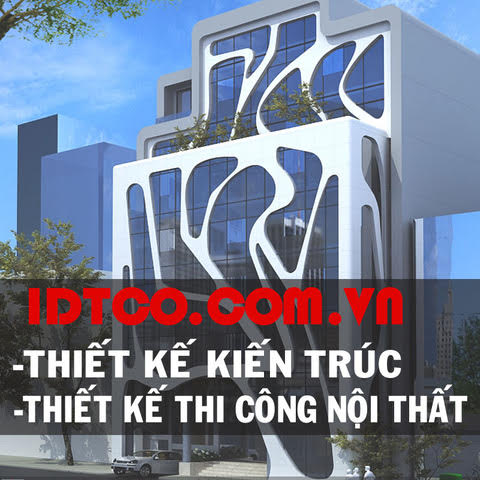Decrees 71/2007/ND-CP dated May 5, 2007 detailing and guiding the implementation of a number of articles of the Law on information technology regarding informa-tion technology industry
DECREE
Detailing and guiding the implementation of a number of articles of the Law on information technology regarding informa-tion technology industry
THE GOVERNMENT
Pursuant to the December 25, 2001 Law on Organization of the Government;
Pursuant to the June 29, 2006 Law on Information Technology;
At the proposal of the Minister of Post and Telematics,
DECREES:
Chapter I
GENERAL PROVISIONS
Article 1.-Scope of regulation
This Decree provides for information technology industry activities and measures to ensure the development of the information technology industry.
Article 2.-Subjects of application
This Decree applies to Vietnamese and foreign organizations and individuals engaged in information technology industry activities in the Vietnamese territory.
Article 3.-Interpretation of terms
In this Decree, the terms below are construed as follows:
1. Software product means software and accompanying documents which are produced and displayed or stored in objects of any form and can be purchased, sold or transferred to other subjects for exploitation or use.
2. System software means a software used for organizing and maintaining the operation of a system or digital equipment (below collectively referred to as digital equipment). A system software may create an environment for application softwares to operate and be constantly in the operation status during the operation of digital equipment.
3. Application software means a software developed and installed in a certain environment to perform specific tasks or operations.
4. Utility software means a software helping users organize, manage and maintain the operation of digital equipment.
5. Tool software means a software used as a tool by software developers to use and develop other softwares.
6. Packaged software means a complete software product with a registered trademark which is multiplied for supply to the market.
7. Software manufactured to order means software products manufactured under specific requirements of customers or users.
8. Embedded software means software products which are installed by the manufacturer beforehand in digital equipment and operate together with digital equipment without requiring activation by users.
9. Software processing means activities whereby the processor manufactures and supplies software products or services or performs some stages to complete software products or services at the request of the processes.
10. Software service means activities in direct support or service of the manufacture, installation, exploitation, use, upgrading, warranty and maintenance of software and other similar activities related to software.
11. Digital information content products means information content products, including documents, data, images and sounds, which are displayed in the digital form, stored and transmitted in the network environment.
12. Digital information content services means services provided in the network environment in direct support or service of the manufacture, exploitation, distribution, upgrading, warranty and maintenance of digital information content products and other similar activities related to digital information contents.
13. Audio-visual electronic equipment means electronic equipment capable of recording, storing, transmitting, broadcasting, distributing or supplying image or sound information to users in any information format. Audio-visual electronic equipment includes television sets, VCD and DVD players, hi-fis, digital music players, digital cameras, digital camcorders.
14. Electronic home appliances means electronic equipment used at home. Electronic home appliances include air conditioners, refrigerators, washing machines, vacuum cleaners and microwave ovens.
15. Specialized electronic equipment means electronic equipment used in specialized domains. Specialized electronic equipment includes measuring, automatic, medical and biological equipment and those in other specialized domains.
16. Information-telecommunications and multimedia equipment include switchboard, transmission or terminal equipment, optic or communication cables, satellite communication equipment and transmission-broadcasting equipment.
Article 4.-Contents of state management of the information technology industry
1. Formulating, organizing the implementation of policies, strategies, plannings, plans and programs for development of the information technology industry.
2. Drafting, promulgating, popularizing, disseminating and organizing the implementation of legal documents on the information technology industry.
3. Elaborating, promulgating regulations on standards and quality applicable in the information technology industry; managing information safety and security in information technology industry activities.
4. Granting, suspending, invalidating and withdrawing information technology industry certificates.
5. Entering international cooperation on the information technology industry.
6. Managing investment in information technology industry activities in accordance with law.
7. Managing and developing human resources for the information technology industry.
8. Organizing the management and use of natural resources and national databases on the information technology industry.
9. Managing, making statistical reports on the information technology industry in accordance with law.
10. Supervising, inspecting, settling complaints about, denouncing and handling, violations in the information technology industry.
11. Mobilizing information infrastructure and equipment of the information technology industry in service of defense and security and in other emergency cases under the provisions of law.
Article 5.-Responsibility for state management of the information technology industry
1. The Ministry of Post and Telematics is answerable to the Government for assuming the prime responsibility for, and coordinating with concerned ministries and ministerial-level agencies in, performing the state management of the information technology industry.
2. Ministries, ministerial-level agencies and government-attached agencies shall, within the ambit of their tasks and powers, coordinate with the Ministry of Post and Telematics in performing the state management of the information technology industry.
3. Provincial/municipal People's Committees shall perform the state management of the information technology industry in their respective localities according to the Government's regulations.
Provincial/municipal Services of Post and Telematics shall assist provincial/municipal People's Committees in performing the state management of the information technology industry in their respective localities.
Article 6.-Principles of international cooperation in information technology industry activities
The State shall adopt policies and measures to promote international cooperation with foreign countries and international organizations in information technology industry activities on the basis of respect for independence and sovereignty, equality and mutual benefit and in accordance with Vietnamese law as well as international law and practice with a view to developing the information technology industry and enhancing the friendly and cooperative relations and mutual understanding between Vietnam and foreign countries and international organizations.
Article 7.-Contents of international cooperation in information technology industry activities
1. Disseminating and popularizing strategic development orientations and policies for the information technology industry to foreign countries and international organizations.
2. Establishing and developing cooperative relations in information technology industry activities.
3. Joining international information technology industry organizations.
4. Cooperating in, supporting and promoting the development of human resources for the information technology industry.
5. Cooperating in scientific research and transfer of advanced technologies.
6. Exchanging information and experience on information technology industry development.
7. Formulating and implementing international information technology industry programs and projects.
Chapter II
INFORMATION TECHNOLOGY INDUSTRY ACTIVITIES
Section 1. TYPES OF INFORMATION TECHNOLOGY INDUSTRY ACTIVITIES
Articles 8.-Hardware industry activities
1. Hardware industry activities include designing and manufacturing hardware products; assembling and processing hardware products; providing hardware industry services.
2. Hardware products are of the following groups:
a/ Computers, network equipment, peripheral devices;
b/ Audio-visual electronic equipment;
c/ Electronic home appliances;
d/ Specialized electronic equipment;
e/ Communication-telecommunication and multimedia equipment;
f/ Electronic accessories and components;
g/ Other hardware products.
3. Hardware services include the following:
a/ Counseling and support for customers to install hardware products;
b/ Distribution and circulation of hardware products;
c/ Installation, repair, maintenance and warranty of hardware products;
d/ Import and export of hardware products;
e/ Other hardware services.
Article 9.-Software industry activities
1. Software industry activities are activities of designing, manufacturing and supplying software products and services, including manufacturing packaged softwares, manufacturing softwares under orders or embedded softwares; processing softwares and providing software services.
2. Software products include:
a/ System softwares;
b/ Application softwares;
c/ Utility softwares;
d/ Tool softwares;
e/ Other softwares.
3. Software services include:
a/ Administration, warranty and maintenance of operations of softwares and information systems;
b/ Software quality counseling, assessment and evaluation;
c/ Software project counseling and formulation;
d/ Software valuation counseling;
e/ Software technology transfer;
f/ System integration;
g/ Assurance of safety and security for software products and information systems;
h/ Distribution and supply of software products;
i/ Other software services.
Article 10.-Content industry activities
1. Content industry activities include activities of manufacturing digital information content products and providing digital information content services.
2. Digital information content products include:
a/ Textbooks, lectures and learning materials in the electronic form;
b/ Books, newspapers and documents in the digital form;
c/ Electronic games, including PC games, online games and mobile phone games; interactive TV games;
d/ Entertainment products in mobile or fixed telecommunications networks;
e/ Digital libraries, databases or dictionaries;
f/ Digital films, photos, music or advertisements;
g/ Other digital information content products.
3. Digital information content services include:
a/ Distribution and supply of digital information content products;
b/ Entry, updating, search, storing and processing of digital data;
c/ Administration, maintenance and warranty of digital information content products;
d/ Modification, addition of utilities and localization of digital information content products;
e/ Distance training; distance health examination and treatment; and communication services provided in the network environment;
f/ Other information content services.
Article 11.-Lists of digital information content services and products
The Ministry of Post and Telematics shall periodically promulgate detailed lists of digital information content services and products defined in Articles 8, 9 and 10 of this Decree.
Section 2. DEVELOPMENT OF KEY INFORMATION TECHNOLOGY INDUSTRY PRODUCTS
Article 12.-Programs on and list of key information technology products
1. The State encourages and gives special investment incentives for research development and production of key information technology products defined in Article 50 of the Law on Information Technology in accordance with the investment law.
2. The Ministry of Post and Telematics shall assume the prime responsibility for, and coordinate with concerned ministries and branches in, working out programs for the development of key information technology products and submitting them to the Prime Minister for approval.
3. The Ministry of Post and Telematics shall promulgate a list of key information technology products; elaborate and organize the implementation of annual plans on the development of key information technology products.
4. Based on the program for the development of key information technology products approved by the Prime Minister, the Ministry of Planning and Investment shall assume the prime responsibility for, and coordinate with the Ministry of Finance and the Ministry of Post and Telematics in, summing up and arranging state budget capital in annual plans on state development investment in key information technology products and submitting them to competent authorities for decision.
5. Ministries and ministerial-level agencies shall, on the basis of their functions, tasks and powers, coordinate with the Ministry of Post and Telematics in, implementing programs and plans on the development of key information technology products.
6. Provincial/municipal People's Committees shall, on the basis of the list of key information technology products defined in Clause 3 of this Article, elaborate programs for the development of key information technology products in their respective localities and plans on the allocation of local budgets for these programs.
Article 13.-Participation in research and development, and manufacture of key information technology products
1. Organizations and individuals may participate in the research and development, and manufacture of key information technology products.
2. Organizations and individuals participating in state-funded programs on the development of key information technology products must meet the following conditions:
a/ Their operation domains and professional qualifications are relevant to the research and development, manufacture and trading of products on the list of key information technology products;
b/ Their technical and technological capabilities, and solutions for the development of information technology products are compatible with these programs.
3. The Ministry of Post and Telematics shall specify conditions on professional qualifications, technical and technological capabilities as well as solutions for the development of information technology products prescribed in this Article.
Article 14.-Procedures for registration of participation in state budget-funded research and development or manufacture of key information technology products
1. For organizations and individuals, a registration dossier comprises:
a/ An application for registration of participation in the program on the development of key information technology products;
b/ The business registration certificate or investment certificate, for enterprises;
c/ The feasibility study report on research and development or manufacture of information technology industry products, including manufacture and business purposes; production and business plans; technological and technical solutions; expected outcomes; and commitments on the implementation of the project for proper purposes and on schedule.
2. The Ministry of Post and Telematics shall assume the prime responsibility for, and coordinate with concerned ministries and branches in, processing dossiers of registration for participation in the central budget-funded research and development or manufacture of key information technology products in accordance with law.
3. Provincial/municipal People's Committees shall receive, process and handle dossiers of registration for participation in the local budget-funded research and development or manufacture of key information technology products in accordance with law.
Section 3. RIGHTS AND RESPONSIBILITIES OF ORGANIZATIONS AND INDIVIDUALS INVOLVED IN INFORMATION TECHNOLOGY INDUSTRY ACTIVITIES
Article 15.-Rights and responsibilities of organizations and individuals engaged in information technology industry activities
1. Organizations or individuals engaged in information technology industry activities have the following rights:
a/ To participate in the research and development of information technology products;
b/ To manufacture and supply information technology products;
c/ To digitalize, maintain and increase the value of, information resources;
d/ To register intellectual property rights to products and services which they create and the State protects in accordance with law;
e/ To exercise other rights in accordance with law.
2. Organizations and individuals engaged in information technology industry activities have the following responsibilities:
a/ To meet the prescribed conditions and comply with the provisions of the Law on Information Technology, the Investment Law, the Enterprise Law, the Law on Enterprise Income Tax, the Law on Intellectual Property, the Law on Technology Transfer and relevant laws;
b/ To ensure the truthfulness of research and development as well as manufacture results;
c/ By March 15 annually at the latest, information technology industry enterprises shall send reports on the previous year's situation of specialized information technology industry activities to provincial/municipal Post and Telematics Services of their respective localities. The Ministry of Post and Telematics shall specify the contents of those reports.
Article 16.-Rights and responsibilities of organizations and individuals engaged in software industry activities
Organizations and individuals engaged in software industry activities shall comply with the provisions of Article 15 of this Decree, the relevant provisions of law and the following provisions:
1. Organizations and individuals may not commit acts in order to obtain source codes of softwares, software design structures or basic contents of softwares and software documents without permission of software owners.
2. Individuals who are hired to research and develop softwares or any individuals who have access to softwares may not copy and use for any purposes those softwares, software documents, software structures, software source codes or their basic contents without permission of investors of research and development of those softwares.
Article 17.-Rights and responsibilities of organizations and individuals engaged in content industry activities
1. Organizations and individuals engaged in content industry activities shall comply with the provisions of Clauses 2 and 3 of Article 9, Clause 2 of Article 12 of the Law on Information Technology and Article 15 of this Decree.
2. Organizations and individuals engaged in the manufacture or supply of complete digital information content packages shall display on digital information content products or their packages the following contents:
a/ The date of manufacture;
b/ The name of the manufacturer;
c/ The serial number of the business registration certificate or code granted by a competent state agency;
d/ The trademark of the product;
e/ Conditions for the use of digital information content products;
f/ Other necessary conditions.
3. Within five years from the date of manufacture of digital information content products, organizations and individuals may not infringe upon the interests of manufacturers of those products by copying, reproducing or transmitting the whole or a part of contents of the products for profit-making purposes.
4. Digital information content products protected under the intellectual property law shall be governed by the intellectual property law.
Article 18.-Rights and responsibilities of organizations and individuals engaged in research and development or manufacture of key information technology products
1. Organizations and individuals engaged in the research and development or manufacture of key information technology products are entitled to priority investment from the State and preferences prescribed by law.
2. Organizations and individuals engaged in the state-funded research and development or manufacture of key information technology products shall remit into the state budget part of their revenues from the sale of those products. The Ministry of Finance shall assume the prime responsibility for, and coordinate with the Ministry of Post and Telematics in, specifying the remittance levels.
3. Organizations and individuals may not assign, sell or transfer technologies or solutions for the development of key information technology products invested by the State without consent of agencies receiving, processing and handling dossiers of registration for participation in the research and development or manufacture of those products as defined in Article 14 of this Decree.
4. Organizations and individuals engaged in the research and development or manufacture of key information technology products are subject to inspection and control and shall abide by the reporting regime prescribed by the Ministry of Post and Telematics regarding investment projects on research and development, trial manufacture and trade promotion of key information technology products.
Chapter III
INFORMATION TECHNOLOGY PARKS
Article 19.- Types of information technology parks
Information technology parks are hi-tech parks where information technology research and development, production, business or training establishments are located or associated. They are of the following two types:
1. Information technology parks with specified geographical boundaries where information technology research and development, production, business or training establishments are located.
2. Information technology parks without specified geographical boundaries, which are formed with software industry or content industry research and development, production, business or training establishments located in separated areas or buildings and associated with one another in the network environment.
Article 20.-Establishment, recognition of, and investment preferences for, information technology parks
1. Investment procedures for the establishment of information technology parks with specified geographical boundaries shall comply with the investment law.
2. Constructed areas or buildings where information technology industry activities are carried out may be considered for recognition as information technology parks. Procedures for recognition as information technology parks are defined in Article 21 of this Decree.
3. Organizations and individuals investing in the construction and development of information technology parks; organizations and individuals engaged in information technology industry production and business activities in information technology parks are entitled to investment preferences given to hi-tech parks.
Article 21.- Conditions and procedures for recognition as information technology parks
1. An information technology park with specified geographical boundaries must meet the following conditions:
a/ Having at least 300 laborers, or at least 500 laborers for Hanoi and Ho Chi Minh City, directly working at information technology industry establishments;
b/ Having at least half of its ground area occupied by information technology industry establishments and their accompanying equipment.
c/ Having common infrastructures to ensure information technology industry activities, such as meeting rooms, seminar rooms, and specialized facilities and equipment to ensure those activities.
2. An information technology park without specified geographical boundaries must meet the following conditions:
a/ Having at least 300 laborers, or at least 500 laborers for Hanoi and Ho Chi Minh City, directly working at establishments manufacturing or trading in software or digital information content;
b/ Having at least half of the ground area of associated areas or buildings occupied by establishments manufacturing or trading in software or digital information content and their accompanying equipment.
c/ Satisfying the conditions on the bandwidth connecting buildings, areas or buildings and the wide area network (WAN) prescribed by the Ministry of Post and Telematics;
d/ At least half of establishments manufacturing or trading in software or digital information content located in different buildings are linked together in the process of manufacture and supply of softwares or digital information;
e/ Having common infrastructures to ensure software industry and content industry activities such as meeting rooms, seminar rooms, and specialized facilities and equipment to ensure those activities.
3. The Ministry of Post and Telematics shall formulate and promulgate regulations on the order and procedures for consideration of and recognition as information technology parks.
4. Provincial/municipal People's Committees shall recognize or cancel information technology parks on the basis of the conditions specified in Clauses 1 and 2 of this Article.
Article 22.-Management of information technology parks
1. The Ministry of Post and Telematics shall assume the prime responsibility for, and coordinate with concerned ministries and branches in, elaborating and submitting to the Prime Minister for approval a planning on information technology parks.
2. The Ministry of Post and Telematics shall act as the state agency managing information technology parks in which investment is subject to approval of the Prime Minister. The Management Boards of information technology parks in which investment is subject to approval of the Prime Minister shall be organized and staffed under the Ministry of Post and Telematics. The heads of the Management Boards shall be appointed by the Prime Minister at the proposal of the Minister of Post and Telematics.
3. Provincial/municipal People's Committees shall act as the state agencies managing information technology parks to which they grant investment certificates; and information technology parks recognized under the provisions of Clause 3, Article 21 of this Decree. The functions, tasks, powers and organizational structure of the management units of local information technology parks shall be specified by provincial/municipal People's Committees.
4. Land management, infrastructure construction, labor management, population management, finance, accountancy and foreign exchange in information technology parks shall be performed in accordance with the law on hi-tech parks.
Chapter IV
MEASURES FOR ENSURING THE DEVELOPMENT OF INFORMATION TECHNOLOGY INDUSTRY
Article 23.-Development of human resources for the information technology industry
The State shall prioritize the development of human resources for the information technology industry in the following forms:
1. Information technology industry is included in the priority group of state budget-funded scholarship programs for overseas training or cooperation development scholarship programs between the Vietnamese Government and foreign governments or international organizations.
2. Overseas Vietnamese investing or participating in information technology industry activities in Vietnam may buy houses and residential land under favorable conditions as prescribed by the law on land and houses.
3. The State shall create favorable conditions for sending Vietnamese software and digital information laborers to work, practice or study abroad.
4. The Ministry of Post and Telematics shall assume the prime responsibility for, and coordinate with the Ministry of Education and Training and the Ministry of Labor, War Invalids and Social Affairs in, specifying conditions for short-term training and fostering of specialized skills and new technology skills for human resources of the information technology industry; and grant information technology certificates.
5. The Ministry of Education and Training shall assume the prime responsibility for, and coordinate with the Ministry of Post and Telematics in, reviewing, regularly supplementing and adjusting information technology training programs in universities and colleges, paying attention to the quick development of new technologies and new trends in the world in the domain of information technology.
Article 24.- Investment in development of the information technology industry
1. Annually, the Ministry of Post and Telematics shall elaborate plans and make cost estimates for the development of the information technology industry.
2. The Ministry of Finance shall assume the prime responsibility for, and coordinate with the Ministry of Post and Telematics and the Ministry of Planning and Investment in, guiding the financial management of activities to form the information technology industry.
Article 25.-Investment preferences
1. Research and development, manufacture or business establishments in the information technology industry are entitled to investment preferences under the Government's Decree No. 108/2006/ND-CP of September 22, 2006, detailing and guiding the implementation of a number of articles of the Investment Law.
2. Information technology parks are entitled to preferences equivalent to those granted to hi-tech parks under the Government's Decree No. 108/2006/ND-CP of September 22, 2006, detailing and guiding the implementation of a number of articles of the Investment Law, and legal provisions on policies to encourage investment in hi-tech parks.
3. Investment projects which are particularly important to development of the information technology industry are entitled to additional preferences as decided by the Prime Minister.
Article 26.-Priorities for development of the software industry and content industry
1. The State shall grant the highest preferences to organizations and individuals participating in software industry or content industry activities in accordance with law, including:
a/ Organizations and individuals investing in the manufacture of, or trade in, softwares; or the manufacture of digital information content products are entitled to tax preferences provided for by the tax law and land use preferences;
b/ Software and digital information content products manufactured in Vietnam and software services supplied by organizations and enterprises of all economic sectors operating in Vietnam enjoy the highest preferences in terms of value added tax and export tax.
2. If organizations or enterprises participate in the software industry or content industry and in many other activities, they are only entitled to preferential policies prescribed in this Article for the manufacture and supply of software products and services or the manufacture of digital information content products.
Article 27.-Building of material and technical facilities for research and development of the software industry and content industry
1. The Ministry of Post and Telematics shall study and formulate policies to encourage domestic and foreign organizations and individuals to set up venture investment funds in the domain of information technology industry in Vietnam.
2. To adopt priority policies to mobilize various capital sources for the building of establishments specialized in software industry and content industry research and development, which will strive for the following targets:
a/ Playing the role of key software industry and content industry laboratories up to regional and international standards;
b/ Acting as centers for research and development and support of the application of industrial production processes and information technology industry quality and standard assurance processes;
c/ Functioning as nurseries of new creative ideas and new products in the domain of software industry and content industry;
d/ Serving as a bridge linking information technology training and information technology industry manufacture; acting as centers to support the development of human resources for the software industry and content industry.
Article 28.-Application of software industry and content industry quality assurance processes
1. The Government encourages software enterprises and enterprises manufacturing digital information contents to apply processes to assure their quality up to the CMM, CMMI standards or other equivalent standards. Software products and services and digital information content products of enterprises which have been accredited to apply processes of assuring their quality according to the CMM, CMM1 standards of level 3 upward or equivalent standards shall be prioritized for use in information technology projects funded with the state budget or capital of state budget origin in accordance with law.
2. The Government shall adopt policies to support enterprises to obtain certificates of assurance of the quality of software products and digital information according to the CMM, CMM1 standards or equivalent standards.
Article 29.-Management and exploitation of the software intellectual property depository
1. The State holds intellectual property rights to software products and digital information contents researched, developed or manufactured by organizations or enterprises with state budget capital or capital of state budget origin so as to create a software intellectual property depository of the State, thereby creating capital sources to support the development of the software industry and content industry.
2. The Ministry of Post and Telematics shall formulate and promulgate a Regulation on management and exploitation of the software intellectual property depository.
Article 30.-Management of information on the information technology industry
1. The Ministry of Post and Telematics shall take responsibility for gathering, analyzing, managing and promulgating information on the development of the information technology industry in the country and overseas.
2. Information on the information technology industry defined in Clause 1 of this Article covers:
a/ The technological level of the production of information technology;
b/ The trends of research and development of information technology;
c/ The trends of development of the information technology industry market;
d/ The present situation of the development of information technology industry enterprises.
Chapter V
IMPLEMENTATION PROVISIONS
Article 31.-Organization of implementation
The Ministry of Post and Telematics shall assume the prime responsibility for, and coordinate with the concerned agencies in, detailing and guiding the implementation of this Decree.
Article 32.-Implementation effect
This Decree takes effect 15 days after its publication in "CONG BAO." All earlier regulations contrary to this Decree are annulled.
Article 33.-Implementation provision
Ministers, heads of ministerial-level agencies, heads of government-attached agencies and presidents of provincial/municipal People's Committees shall implement this Decree.

















